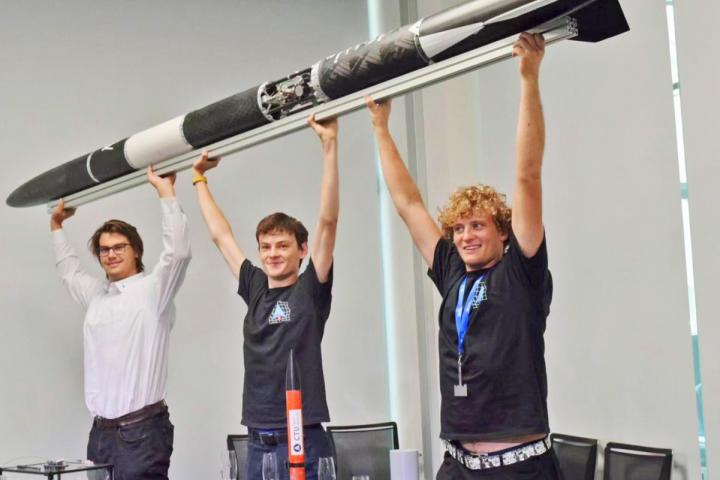
The aim of the team is to connect theory with practice, expand collaboration with industry and create a platform for future space engineers and innovators. It also wants to represent CTU and the Czech Republic at international competitions. In the near future, it will be EuROC 2024 and launches on Czech and Slovak territory. The facilities were provided by the Institute of Aircraft Technology of Faculty of Mechanical Engineering of Czech Technical University in Prague.
With the Illustria rocket, which has a diameter of 161 millimetres and a height of 3,520 millimetres, the team plans to fly to an altitude of 3 kilometres. This rocket was developed by the team for the 2023 European Rocketry Challenge in Portugal. The all-carbon construction ensures low weight and strength. The Illustria rocket has a hybrid engine - it is powered by 3D printed ABS fuel that oxygenates N20 and the entire propulsion system is pressurized with highly compressed N2. The engine thrust is 1,850 N and the impulse is an amazing 9,035 Ns. The correct functioning of all systems is handled by a Cimrman computer that the team designed and built themselves. The payload bay also houses a 2U CubeSat size biology experiment.
The next version of the rocket will also include an aerodynamic brake for precise altitude and a more powerful engine to climb to higher altitudes. At the same time, the team is also developing a liquid-fuel engine that will be tested extensively next year.
At the same time, the team is working on a brand new project: the CZ - Vanguard, a family of rockets for testing Illustria rocket components. It will be a modular rocket, powered by a solid fuel engine, with a range of up to 1 km. In flight, it will reach a maximum speed of up to Mach 0.4. The rockets will be able to be equipped with ARC active flight control, which will be tested in future launches.
For more information, please contact: Viktor Hais, CTU Space Research Team Leader
Mail: lead@spaceresearch.cvut.cz